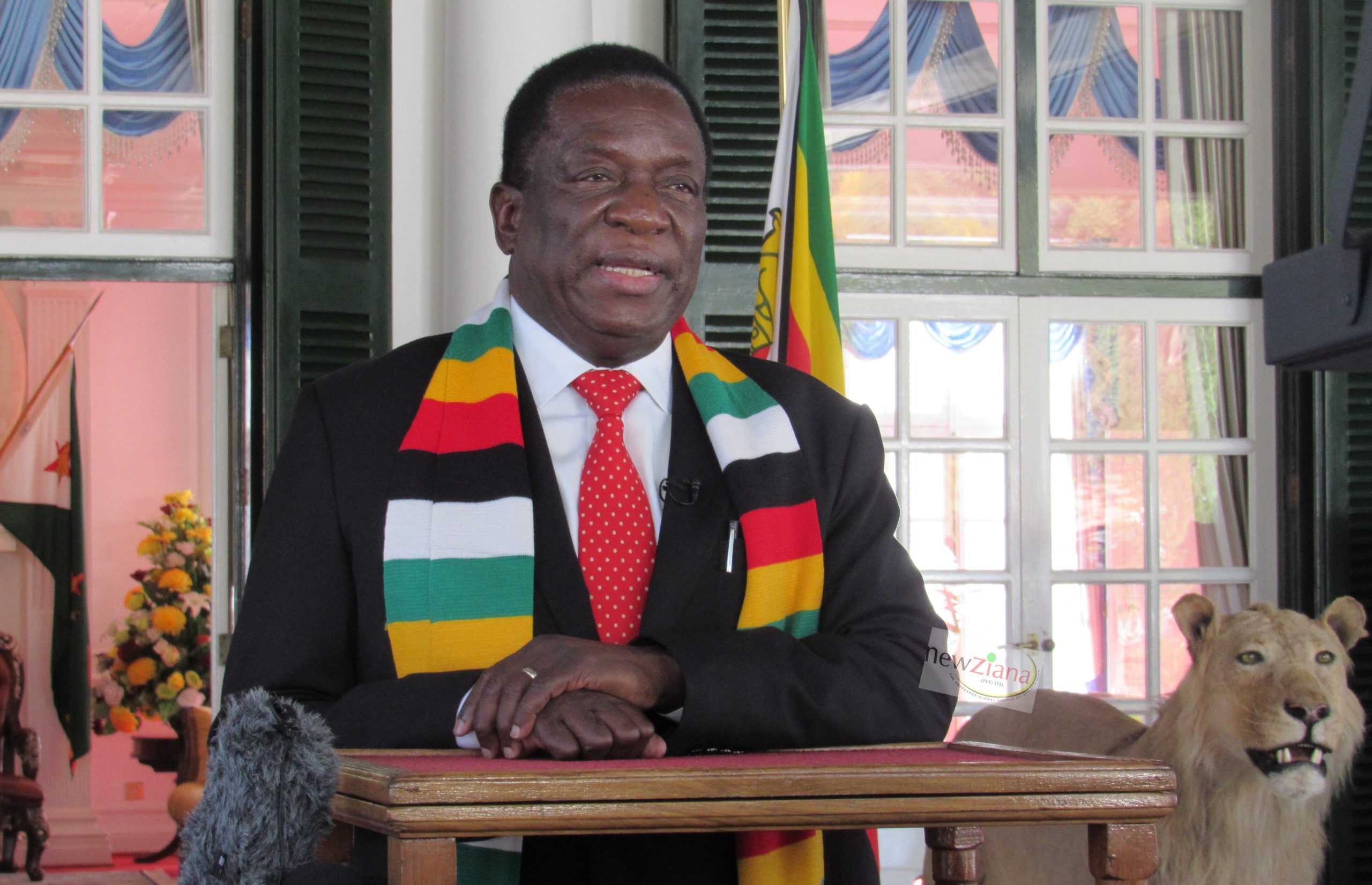Sanctions a weapon of mass destruction – President Mnangagwa
Share

Harare, (New Ziana) – Zimbabwe will forge ahead with reforms and development programmes to improve the quality of life for its citizens despite continued existence of illegal western sanctions which have been a bane on the country for two decades, President Emmerson Mnangagwa said on Sunday.
In a speck to mark the first anniversary of the SADC Anti-Sanctions Day, the Zimbabwean leader thanked China, Russia, the African Union and other progressive countries that have unequivocally continued to back Harare in the face of unrestrained onslaughts by western countries, primarily the United States and Britain.
“Sanctions are a blunt coercive instrument with far reaching implications on the ordinary people, especially women, children, youths, the elderly, people with disabilities and those with chronic illnesses,” President Mnangagwa said.
“My country’s citizens have fallen victim to this indiscriminate weapon of mass destruction which is being deceitfully presented to the world as targeted.”
He said the embargo, slapped on the country due to political differences over Harare’s handling of the historic land reform programme, had constrained development for nearly 20 years, leading to deterioration in the quality of life for citizens.
“We are a peaceful nation on the path to implementing robust reforms across all socio-economic and political spheres to entrench constitutionalism,” President Mnangagwa said, applauding Zimbabweans for their resilience in the face of hardships.
“We must show resilience, innovativeness and creativity in the face of adversities created by the sanctions, through our collective focus on progress, sharing and accommodating others even as our means and resources remain scarce.”
The government estimates the sanctions to have cost the country over US$100 billion over the two decades.
The AU has backed Sadc, which last year declared October 25, the Anti-Sanctions Day, in which the region campaigns for the removal of the sanctions.
The historic land reform programme saw nearly 500 000 black families being resettled on land previously owned by white farmers.
Government has since agreed a compensation deal worth US$3.5 billion with the former farm owners, but only for infrastructure developments on the acquired farms and not the land itself.
In commemoration of the day, the AU and SADC said the illegal sanctions were no longer relevant and were only saving to hinder the serious progress the country has made in reforming its political and economic environment for the benefit of its citizens.
President Mnangagwa lauded the bodies for their bold show of solidarity in the face of regime change attempts by the western countries, which continuously claimed there was a crisis in Zimbabwe.
He said Africa must use its abundant resources to grow its economy and improve the lives of Africans.
He lauded the European Union for having over the two decades progressively loosened the grip of the embargo, while encouraging the US, which is digging in, to follow suit.
“We urge the United States and the United Kingdom to reciprocate the hand of peace and friendship Zimbabwe has extended,” President Mnangagwa said.
“Our hand of friendship remains stretched out to all.”
New Ziana







